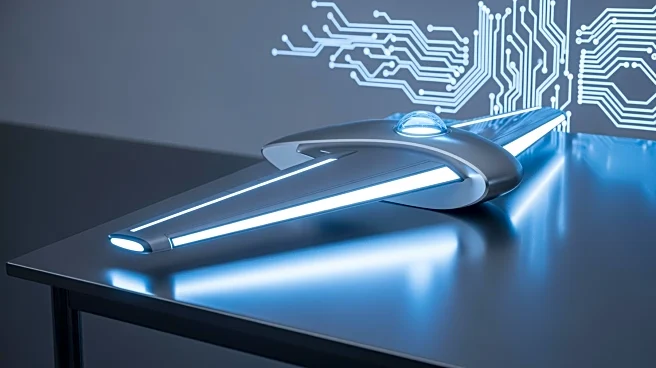What's Happening?
Honeywell Aerospace is actively involved in the development of advanced technologies for unmanned aerial vehicles and is participating in a webinar discussing the role of artificial intelligence (AI) in aerospace
engineering. The webinar, scheduled for December 16, 2025, will feature industry leaders and experts who will explore the current applications and future potential of AI in designing spacecraft thrusters and aircraft concepts. Honeywell's involvement highlights its commitment to integrating AI into its operations, aiming to enhance design processes and innovation in aerospace engineering.
Why It's Important?
The integration of AI in aerospace engineering represents a significant shift in how companies approach design and innovation. By leveraging AI, Honeywell Aerospace and other industry leaders can streamline complex processes, reduce costs, and improve the efficiency of aircraft and spacecraft design. This development is crucial for maintaining competitiveness in the aerospace sector, as AI can lead to breakthroughs in propulsion systems and overall aircraft performance. The webinar serves as a platform for sharing insights and strategies, potentially influencing how other companies adopt AI technologies in their operations.
What's Next?
Following the webinar, Honeywell Aerospace and other participants may continue to explore AI's applications in aerospace engineering, potentially leading to new partnerships and collaborations. Companies might invest in AI research and development to further enhance their design capabilities. The insights gained from the webinar could inform future projects and initiatives, driving innovation and setting new industry standards. Stakeholders, including engineers and business leaders, will likely assess the implications of AI adoption and its impact on their strategic goals.
Beyond the Headlines
The use of AI in aerospace engineering raises ethical and regulatory considerations, particularly regarding safety and reliability. As AI systems become more integrated into design processes, companies must ensure that these technologies adhere to strict safety standards and regulations. Additionally, the shift towards AI-driven engineering may require workforce adaptation, with engineers needing to acquire new skills to work alongside AI systems. This transition could lead to changes in educational programs and professional development within the aerospace industry.









